Grace: Alexander Maksik’s A Marker to Measure Drift
Jennifer Croft
I knew that I had shattered the harmony of the day, the exceptional silence of a beach where I’d been happy. Then I fired four more times at the motionless body where the bullets lodged without leaving a trace.
Albert Camus, The Stranger
Poetry knows that the political rests on forgetting the unforgettable.
Paul Ricoeur, Memory, History, Forgetting
Alexander Maksik’s second novel portrays a young Liberian woman named Jacqueline who does little more than meander Santorini, an island in the Aegean that features beaches of lava pebbles and sand in red and black and white, and yet she astonishes, soothes, and horrifies us with perfect efficiency, making A Marker to Measure Drift a masterpiece.
There is the precision of the protagonist’s voice; there are the island’s elements, rendered palpable—its white hot light, in the beginning, and then its slow-encroaching chill. There is the sheer force of the novel’s rhythm, like a symphony that circles, hovers, comes crashing down as it swells relentlessly to its horrific and incomprehensible climax.
The book is neither a quest nor a journey, although she travels. It is not an investigation into a crime, although atrocities loom out of its pages. It is not the story of a young woman coming of age. It’s not about revenge, or repentance.
It is not these things because the logic that informs its structure is radically different from normal narrative thinking. Thus Maksik manages to accomplish in Marker something next to no one has managed to do, namely, to strip the world down to naked life, life in all its glory and all its agony and terror, and death.
Jacqueline is starving when the novel opens. We watch her watch with lupine greed tempered by good breeding as tourists eat and discard food, and we begin to starve with her. It is the sustained tension between animal need and human dignity that keeps Jacqueline alive. Her mother is her main interlocutor from the first page forward, and she admonishes her always to remember who she is: to wait until the family of tourists has fully left the premises before feeding upon their scraps; to eat them slowly, like a lady, no matter what she feels.
Jacqueline’s disciplined scavenging steadily gives way to a job of her own inventing that enables her to purchase what she needs without shame. Pretending to be a college student in America, she combs the beach for tourists who will pay her one euro to massage their feet for five minutes. With astonishing rapidity, Jacqueline has attained a stability that—far from being a relief—becomes a burden.
In the following passage, Maksik’s prose floats weightlessly and then falls like a fist on a table; this literary version of Muhammad Ali’s famous butterfly-bee dictum is as effective as its predecessor in boxing:
She has food and water and shelter. She has lined one side of the cave with flat stones to serve as shelves. Pedestals. The tube of Fresh Mint ChapStick she found in the sand stands upright like a bullet next to her toothbrush. There’s a neat stack of paper napkins she keeps beneath a small smooth rock. Her sandals side by side on their own stone. There’s a paper cup into which she deposits the money she brings home. Today it holds a single coin. She should go out, but she has no appetite. Hunger is no longer the burden. It is time. It is the new absence of need. The instinct is to protect yourself. To build and organize, to form your days, to apply patterns and repeat them. And she has done all of this without intention. She has built a home without meaning to. And now she wants to know what happens next.
She does not have the capacity to kill herself.
But the “new absence of need” is short-lived. Jacqueline is approached by male Africans she senses will harm her. She thinks back to Liberia, to a band of LURD soldiers threatening to kill her and their cologne, making them “like boys preparing for a dance.” The book’s tempo accelerates almost imperceptibly. Jacqueline’s mother helps to guide her up into the ruins of the island’s ancient amphitheater and agora.
Paul Ricoeur reads Arendt as suggesting that the only reason we can’t forgive ourselves is that we can’t see ourselves for what we are. “We are dependent upon others,” says Arendt, “to whom we appear in a distinctness which we ourselves are unable to perceive.”
Up in the ancient city, Jacqueline meets a tour guide by whom she fights to allow herself to be befriended. In her extended isolation, Jacqueline has forgotten the facial expressions for conversations, their usual cadences, how to pay attention and not get scared: “She held out a small plastic water bottle and crackled it to get Jacqueline’s attention. The noise was very loud.” Haunted by her memories of the cacophonously horrific events that occasioned her flight from Liberia, Jacqueline can barely bear present sounds. We learn from the tour guide that we are now in what was once the epicenter of thriving Minoan culture; Minoan culture, we are told, has vanished off the face of the earth, and everyone living here was killed by a massive volcanic eruption: “Can you imagine?” says the tour guide. “I was thinking of the sound,” says Jacqueline. But what sound could we possibly assign to death and destruction on such a scale?
As she runs out of provisions, Jacqueline allows herself to be talked into riding back down the mountain with the tour group. She frets as they approach their destination: “It was the prospect of noise that was the most daunting. The rush of cars and wind and voices. She was so grateful for the shelter of that bus. Its insulation and quiet.” Having floated for a little while in that quiet insulation, Jacqueline is ejected back again into the world.
Movement towards a goal necessitates the prior progression backwards of one’s mind. An objective is identified, and a sequence of steps is then issued that leads carefully back down to one’s current condition. Targeting is the application of retrospect to the future, its tense the future perfect: you will have graduated, you will have gotten a job, you will have had kids. You will have paid off your mortgage. And only then can the goal be attained, at which time, of course, it simply ceases to exist.
Jacqueline lacks the capacity to move back and forth in this way. Jacqueline is aimless. The novel is aimless. She takes us around and around its molten core.
Having goals is a way of dividing life into blacks and whites: one either successfully achieves one’s goals or one does not. Life is either successful or it is not.
Can there be meaning, however, without aim?
Charles Taylor, who ruled Liberia from 1997-2003, is widely held to be responsible for some of the worst atrocities in recent human history. In April of last year, Taylor was convicted in The Hague of aiding and abetting acts of terrorism, murder, rape, sexual slavery, “outrages upon personal dignity,” enslavement, pillage, and “conscripting or enlisting children under the age of 15 years into armed forces or groups, or using them to participate actively in hostilities,” among other counts.
Jacqueline’s father was Charles Taylor’s right-hand man. Jacqueline grew up in perfect privilege in a house poised high above Liberia’s fast-festering capital, Monrovia.
Then she escaped and came to Santorini.
What does all this make Jacqueline? “And when I die,” she tells her sister, before, “you’ll keep me in your memory, and that’s the only way there’s God.” Jacqueline is spared twice by opposition forces who charge her with conveying their message to the outside world, a mission she has not accepted when we meet her in the Aegean. Jacqueline is not a witness. She is more like living life support to the spirit of her family. She interacts with them constantly, unable to make room for her fellow living beings who surround her. She isolates herself out of fear, but also as the only way of giving herself over fully to the memories of her sister and her parents.
Who was Jacqueline’s father? What did he know of all that torture, murder, rape? How could he not have known?
He knew, of course. And her mother must have known, too. Jacqueline, who returned from her education in England to work for the Ministry of Tourism, where she would call foreign dignitaries and entreat them to come (“You’ve never seen such beaches. A secret paradise, sir.”), must have known. She imagines her boyfriend Bernard, an international aid worker, being unable to separate “her from them” once the scale of the atrocities has finally been revealed.
We can’t separate her from them. And that means we can’t separate them from us.
She tells us what Bernard tells her: that he’s seen children “rip out a man’s intestines and use them for rope. Rope for a checkpoint. Strung across a road, Jacqueline.” Jacqueline remembers conversations with her dad when she was a kid:
Tell me about school. Tell me about these boys your mother says are chasing you. Should I have them shot? I will have them shot tomorrow. Tell me the one you like the most and I’ll have him shot first. Or maybe we’ll cut his head off. Chop off his hands. Give him some long sleeves.
No one was funnier than he. No one more brilliant. No one more handsome. She laughed until she couldn’t breathe.
The same things all fathers say to their daughters, only that in that laughter there is already the slight snarl of an attack: maybe her father really did have those boys shot, decapitated, or mutilated later. Who knows?
Scenes of domestic bliss get darker: there are the four of them sitting around a radio, but the program they are listening just consists of announcements of encroaching opposition forces and the rape of girls “as young as eleven.” When the radio quits working, her parents plug it into her sister’s nostrils. Is this funny?
“We are not a permanent place,” says the ghost of Jacqueline’s mother. Like all of us, all the time, Jacqueline is complicit in cruelty. She has our unwavering sympathy as she narrowly escapes Liberia and as she roams these foreign shores, penniless, defenseless, devastated. “You’ll keep me in your memory,” she has told her sister, “and that’s the only way there’s God.” But what would happen to a person if there were no one there to remember them? Where would their God be?
Jacqueline searches:
Then she watched the sun disappear. She tried not to blink. She tried to imagine the earth moving. She tried to imagine riding its great back. She pressed her hands flat against the ground. She kept her eyes on the sun and swore she could feel the world taking her, hurtling away as the sky at the horizon burst and divided into orange and blue, pink and yellow, and then little by little everything went dark and Jacqueline began to cry.
She was thinking of the way she used to walk into parties.
The prose floats and crashes. Jacqueline submits to “the world taking her” only to feel rebellion welling up within her. No, she will not simply be taken by the world. What about the way she used to walk into parties?
Why does Jacqueline not go to the press? Why does she not seek asylum? Why does she not go to her friends from school in England? She could even go find Bernard in France—she thinks about him all the time, clearly loves him still.
But sometimes Jacqueline’s placid person is brimmed over by violence. Sometimes Jacqueline erupts. She dreams of Bernard: “of making love, of him pressing down on her, and she dreamed of breaking his skull with a heavy rock.” As we are dragged further and further into a music that begins to turn to frenzy, Jacqueline attempts to make a friend, a waitress who takes pity on her and serves her breakfast for free one day. The two meet for a drink.
More crucial than anything else in this novel is this meeting. This connection, and this confession—because when she tells the waitress the story of what happened to her family in Liberia, it reads less like testimony than it does like confession.
Maksik portrays perfectly the precariousness of Jacqueline’s position. Talking to the waitress is like walking a tightrope strung over an abyss. She makes near-missteps; she realizes she sounds strange. She almost falls. When asked how her sister died, she knows that if she lets herself, she will scare her new friend off, and that if she does that, she will have lost everything. But try as she might, Jacqueline cannot operate on the level of the future perfect:
Jacqueline looks over at the girl. She looks back. She seems so young, so frightened. Jacqueline is drunk. She could crush Katarina. And she wants to. She wants to beat her with what she knows. She wants to scream at her. What I have to say, little girl. The things I have to say. She wants to deliver them with violence. But she waits for it to pass. She waits because she does not want to hurt this girl, her waitress, her nurse.
“No,” Jacqueline says. “She wasn’t sick.”
And then, as though in order not to fall herself, she crushes us. Float like a butterfly, sting like a bee: A Marker to Measure Drift’s last few pages are so powerful as to be revolting, once our hearts have been rent.
*
I met Muhammad Ali once at the Tulsa International Airport, when I was ten or so. He signed autographs for my sister and me. We’d just flown in from Rochester, Minnesota, where my sister at the age of six had undergone her first brain surgery, and I was tired and inattentive. I do remember that he was kind, and that what I later learned was Parkinson’s syndrome made his voice quaver and his hands shake.
“We pay for our sins, for the sins of others,” says her mother on the novel’s first page. “Anyway, we can’t understand.”
Now in my turn-of-the-century apartment building in Buenos Aires, the slow-spiraling stone steps sag toward the center. I always think when I leave or return to my apartment of how many people must have climbed and descended them before me, to have trodden down stone.
In the beginning of A Marker to Measure Drift, Jacqueline eats the scraps of food left behind by a family. Sitting “in their depressions,” Jacqueline is released from the expectation of making her own mark. In her aimlessness, Jacqueline does not mean anything. She just means, intransitively, in the same inspiring way that a lightning bug glows.
Our heroine finishes her desperate, elegant meal:
There was nothing to see in the sun or the water. Maybe there was something in the boats, she thought. Maybe there was something there. She liked boats, though she knew nothing about them and had traveled on only a few in her life and most of those, recently. She found them exotic and mysterious in their simplicity. It was that a boat rested on the surface of the water. That was all. Just that it did that. It was not the traveling or the adventure or the freedom. She was not interested in sailors or fishermen. Just the objects and the way they floated. She watched a small yacht pass across the wide bay. Then she turned away.
240 pages. Alfred A. Knopf. 2013.
Image: “Monterey” (2013) by Julia Ng
[ + bar ]
Writing Lessons for the Blind and Deaf (excerpt)
from the future Spanish of Mario Bellatin translated by David Shook
Josué’s mother was blind. Not always. She lost her eyes one at a time, starting... Read More »
Maxine Chernoff
For every appetite there is a world. —Bachelard
You starred in the movie with Maud Gonne and Socrates and Juliet and a flock of sparrows... Read More »
Evita Fashionista
Mariano López Seoane translated by Heather Cleary
A decade ago, the New York philosopher Jennifer Lopez gave us “Jenny from the Block,” an ode to upward mobility... Read More »
The Forgotten Sense (fragment)
Pablo Maurette translated by Andrea Rosenberg
In the winter of 1904–1905, in Beijing, a bodyguard named Fuzhuli was accused of killing his master, a Mongol prince, with... Read More »
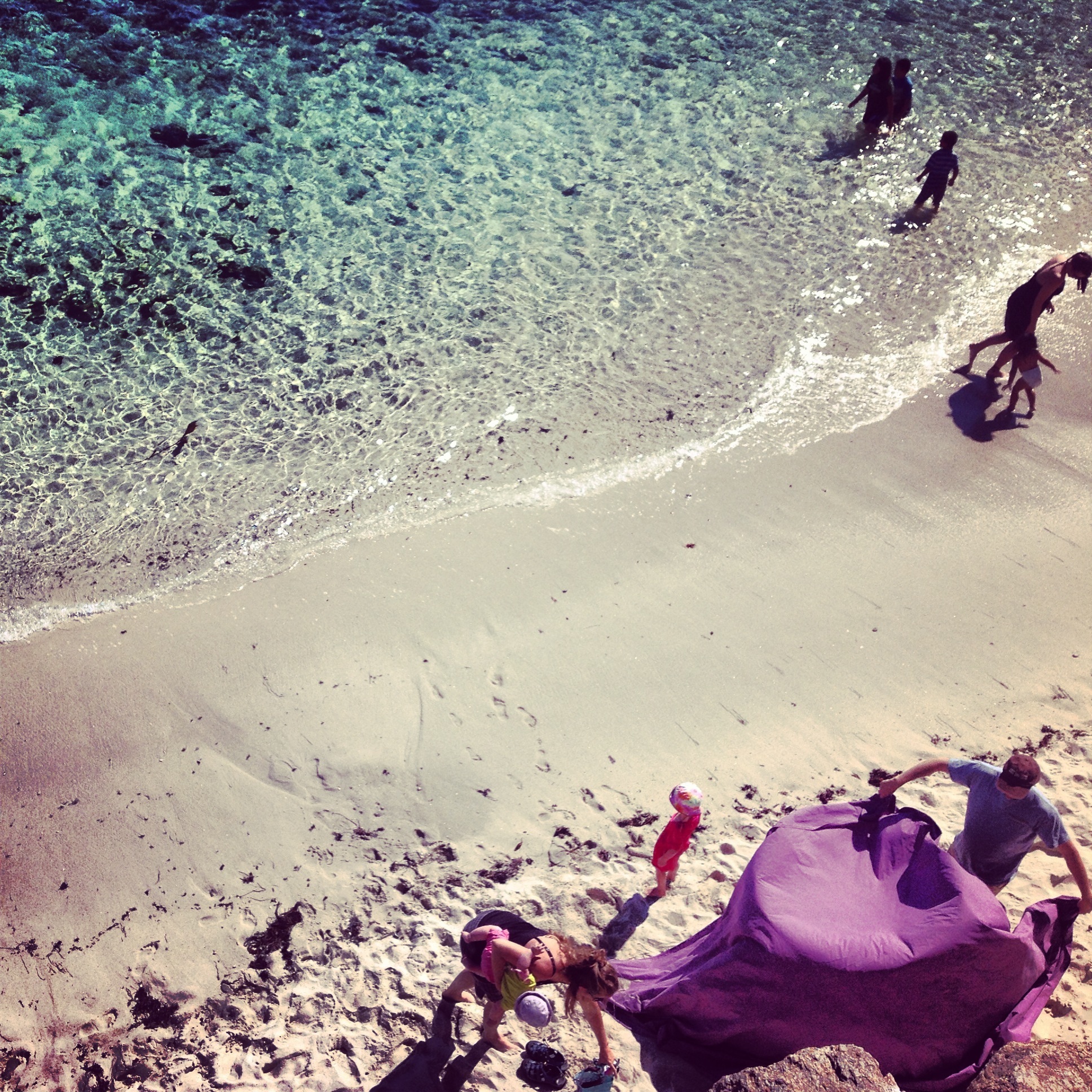
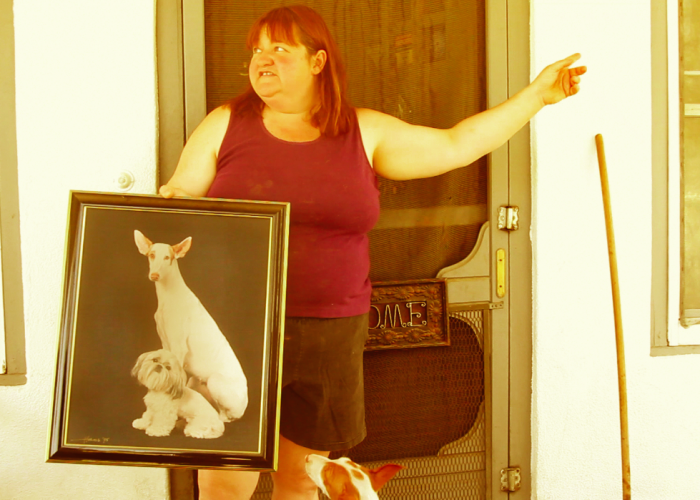
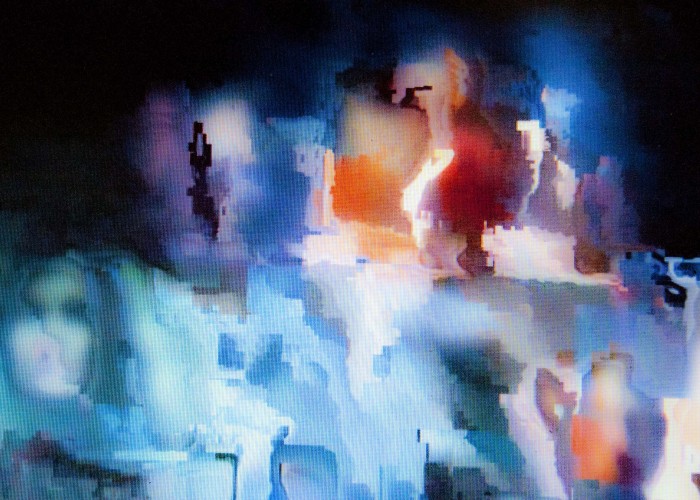
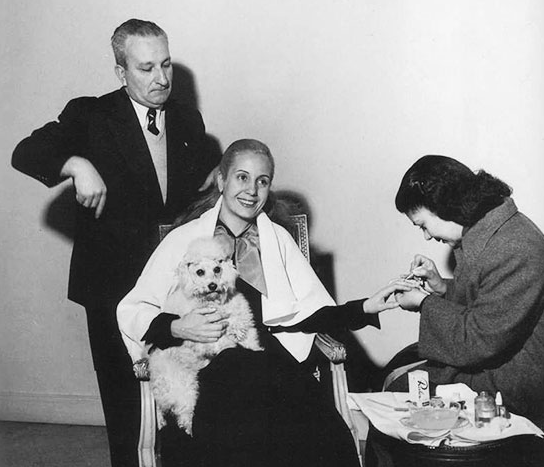
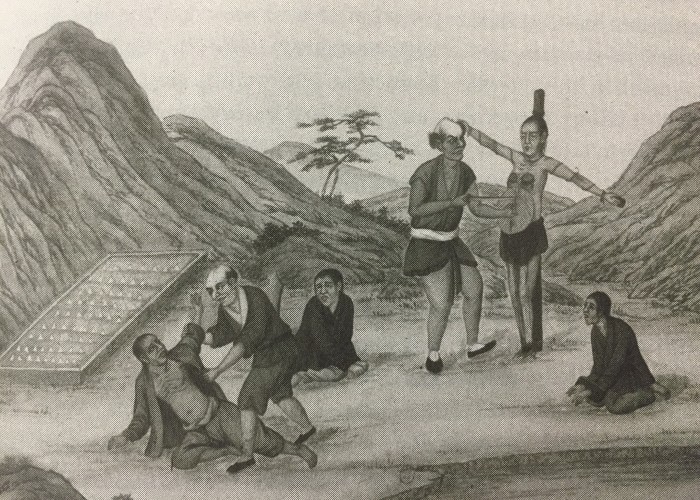



 sending...
sending...